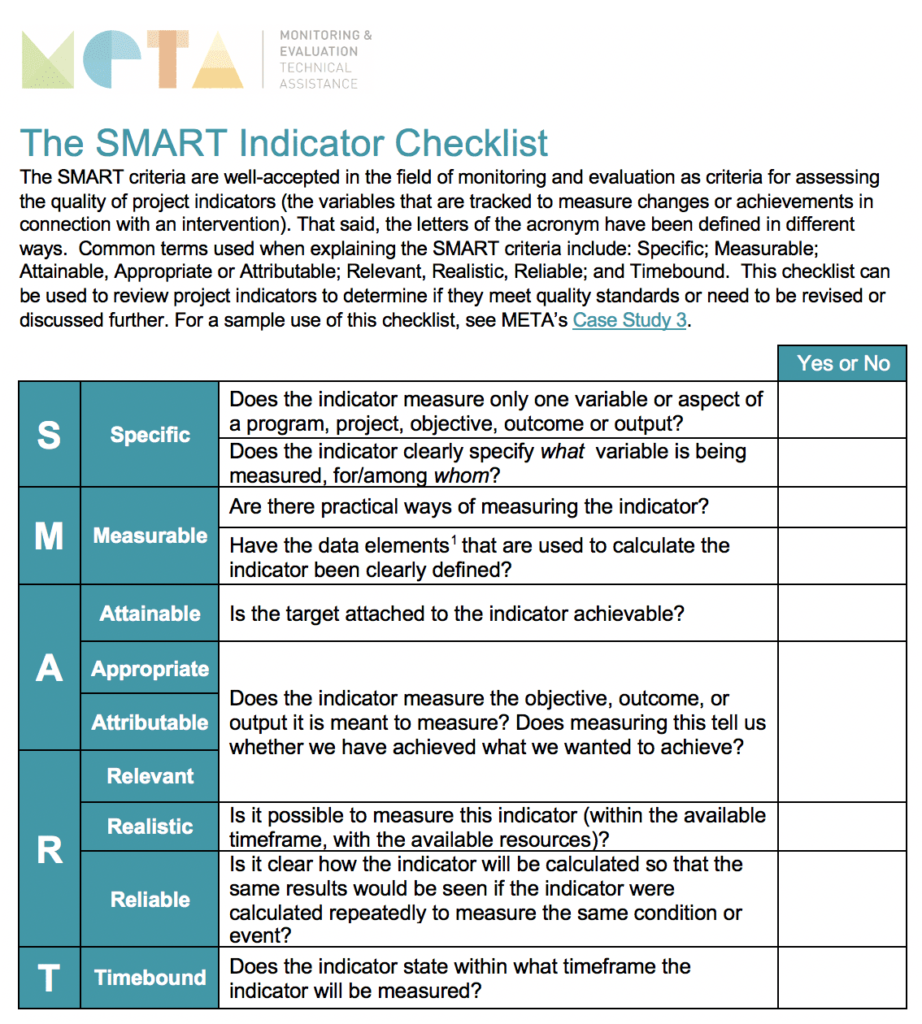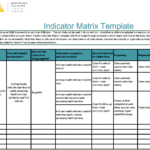The SMART criteria are a well-accepted way to assess the quality of project indicators (the variables that are tracked to measure changes or achievements in connection with an intervention). That said, the letters of the acronym have been defined in different ways. Common terms used when explaining the SMART criteria include: Specific; Measurable; Attainable, Appropriate or Attributable; Relevant, Realistic, or Reliable; and Timebound. You can use the SMART Indicator Checklist to review your project indicators to determine if they meet quality standards or need to be revised or discussed further.
To see one example of the checklist’s use, download the accompanying Case Study 3. It describes the process used by a fictional refugee economic self-sufficiency project team who wanted to ensure that their M&E plans would help them and their donor learn about their project. They also wanted to be able to adjust their project’s implementation as needed, as they learned from ongoing project monitoring. Find out how the SMART Indicator Checklist helped them work towards those goals.







